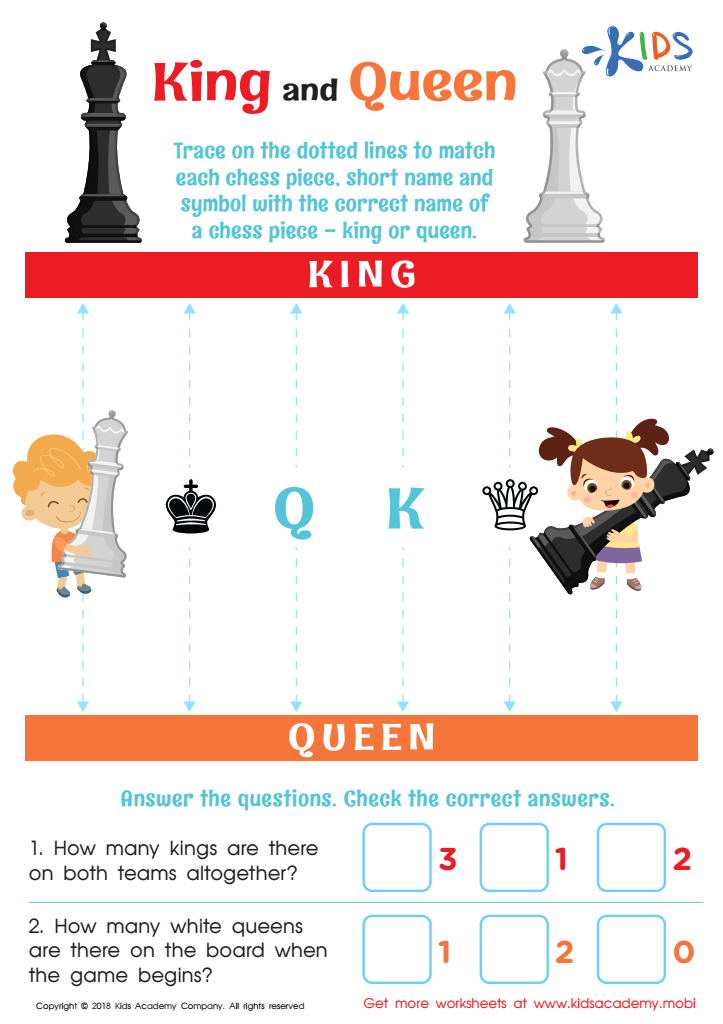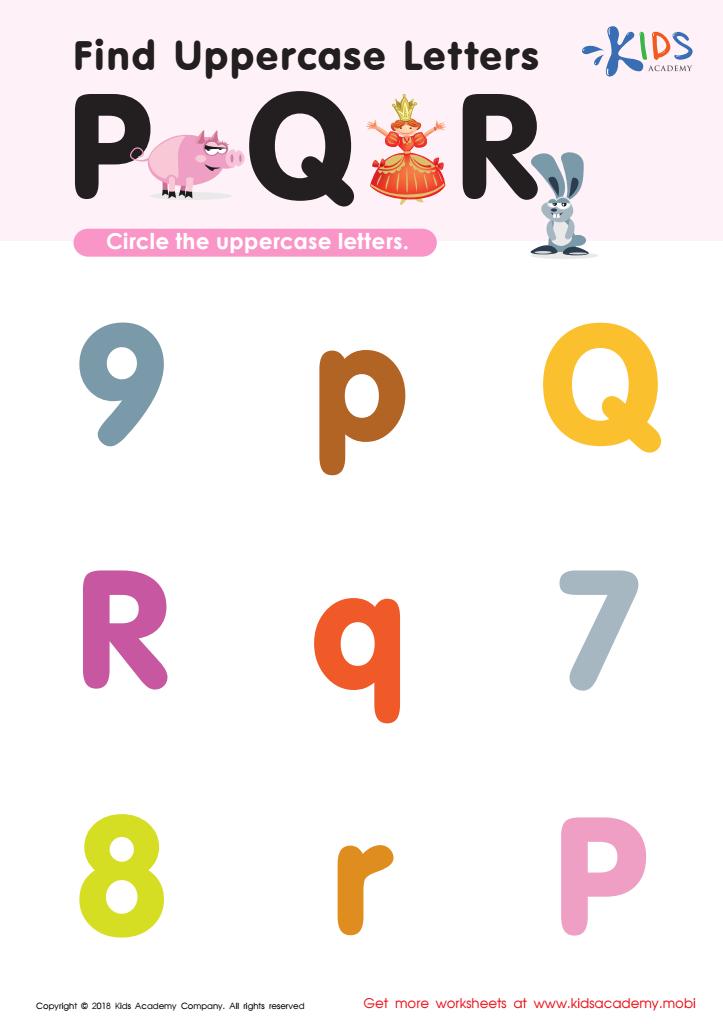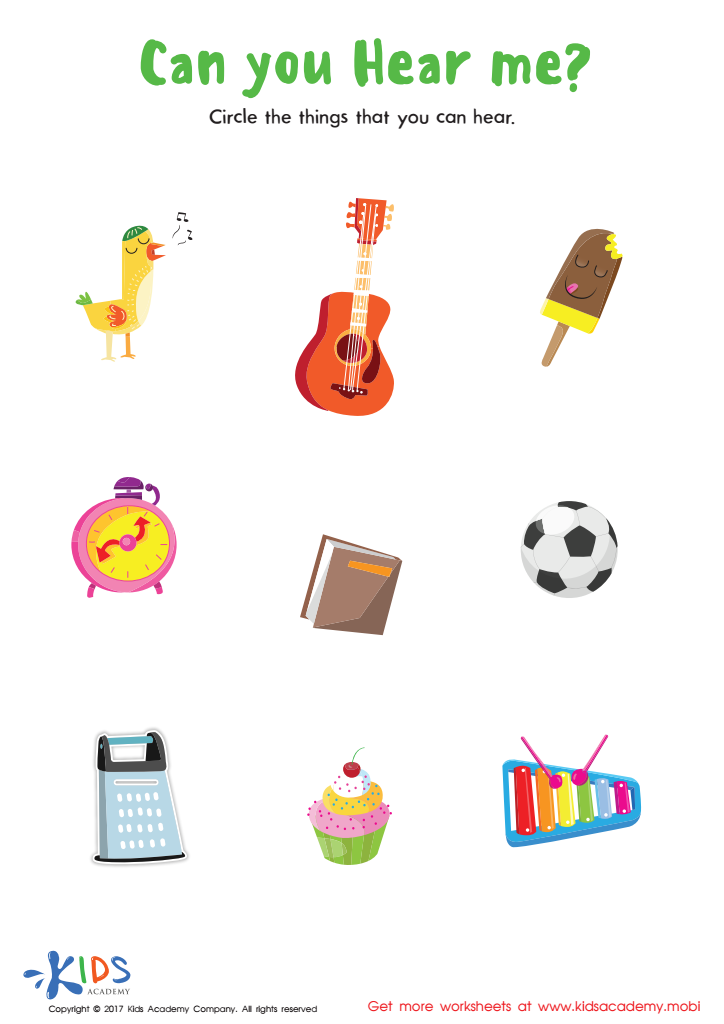Letter identification Normal Worksheets for Ages 6-7
3 filtered results
-
From - To
Discover engaging "Letter Identification Normal Worksheets for Ages 6-7" designed to enhance your child's literacy skills. Perfectly tailored for young learners, these printable worksheets focus on recognizing and identifying letters through fun activities and exercises. Boost your child's confidence in reading and writing with entertaining content that captures their imagination. Each lesson is crafted to support early learning standards and to foster a love for reading, making foundational literacy skills enjoyable and accessible. Visit our page to explore our vast collection of age-appropriate worksheets and start your child's educational journey with confidence.


King and Queen Worksheet


Find Uppercase Letters P, Q, and R Worksheet


Can You Hear Me Worksheet
Letter identification is a crucial foundational skill for children aged 6-7, typically corresponding with the early grades of elementary school. At this stage, children are in the emergent literacy phase, where they transition from recognizing individual letters to understanding their use in forming words. Mastering letter identification supports several essential developmental milestones.
First, fluency in letter identification facilitates reading improvement. When children can swiftly recognize letters, they can more easily sound out words, which is critical for reading. This ability builds confidence and helps maintain their interest and motivation in learning to read.
Second, letter identification is connected with academic success. Strong letter knowledge is a predictor of later reading success, which in turn impacts achievement in other subjects. Early reading skills are foundational; difficulties in this area can lead to a cascade of struggles across the curriculum as literacy is a key component in subjects like science, social studies, and mathematics.
Third, fostering letter identification offers cognitive benefits. It enhances visual processing and memory, and it lays the groundwork for learning phonics—all of which are elements essential for proficient reading and writing.
Thus, prioritizing letter identification through engaging activities and interventions can have long-lasting positive impacts on a child’s educational trajectory and confidence in their ability to learn. Parents and teachers play a critical role in facilitating this learning stage effectively.

 Assign to My Students
Assign to My Students






.jpg)









